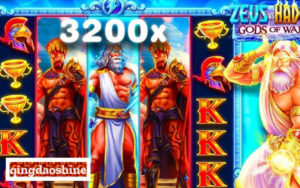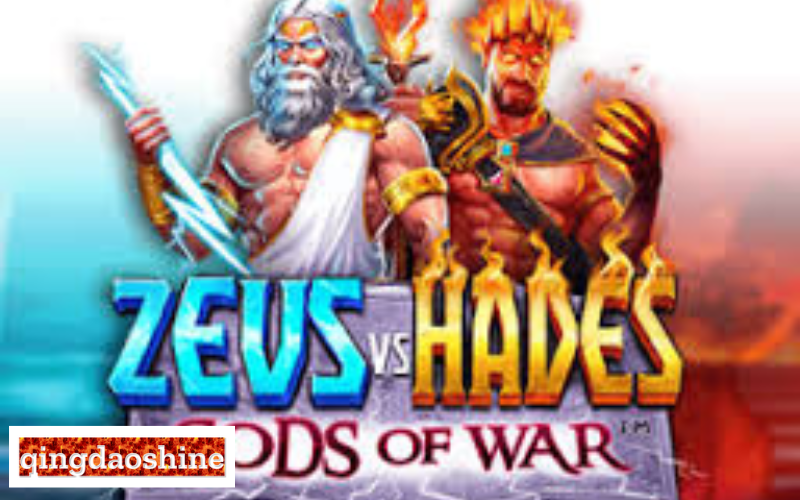ZEUS VS HADES CLASH OF THE ANCIENT GREEK GODS
Greek mythology stands as a testament to timeless tales of power, conflict, and intrigue, with its pantheon of deities commanding awe and fear in equal measure. At the forefront of this divine hierarchy stand Zeus and Hades, two formidable entities whose narratives have woven deeply into the fabric of ancient Greek culture.
Zeus, the thunder-wielding ruler of the gods, exudes authority and influence over the heavens, symbolizing strength and justice in the pantheon. In stark contrast, Hades rules the shadowy depths of the underworld, embodying mystery and the inevitability of death. Together, these contrasting figures embody a duality that reflects the complexity of human existence and the forces that shape our world.
As we embark on a deep dive into the mythological roots of Zeus versus Hades, we unravel the threads of their stories and explore the profound impact they had on ancient Greek beliefs and practices. From shaping religious rituals to influencing societal norms, the legacies of these gods are far-reaching and enduring.
Join us on this immersive journey as we delve into the captivating realm of Greek mythology, where the clash of titans and the dance of gods continue to captivate and inspire generations of storytellers and seekers of wisdom alike.

THE ORIGINS OF ZEUS AND HADES
Zeus, known as the King of the Gods in Greek mythology, reigns supreme on Mount Olympus. His thunderbolt is his iconic symbol, representing his power and authority. Zeus embodies characteristics of strength, wisdom, and leadership. According to Greek myths, Zeus overthrew his father Cronus to take control of the universe. His escapades involve numerous affairs, most famously with his wife Hera, and his clashes with foes like the Titans.
ZEUS: THE KING OF THE GODS
Zeus’s significance lies in his role as the ruler of Mount Olympus, the highest peak in Greece, which serves as the divine realm where the gods gather. His relationships with other deities like Athena, Apollo, and Artemis showcase his familial connections and influence. Zeus also interacts with mortals, often appearing in various forms to meddle in their affairs or bestow favors.
HADES: THE GOD OF THE UNDERWORLD
Hades rules the Underworld, a realm where the souls of the deceased journey after death. His domain is distinct from the other Olympian gods, as he presides over the afterlife and enforces the laws of the dead. Unlike his brothers Zeus and Poseidon, who rule the sky and sea, Hades governs the realm of shadows and spirits. Myths portray Hades as a stern but fair deity, ensuring order and justice in his somber kingdom.
MYTHOLOGICAL CONFLICTS AND RELATIONSHIPS
The intricate tapestry of Greek mythology is woven with a myriad of conflicts and relationships, none more captivating than the dynamic between the mighty Zeus and the enigmatic Hades. Let’s delve into the sibling rivalry and power struggles that shape their interactions, as well as their intriguing relationships with mortals and heroes.
SIBLING RIVALRY AND POWER STRUGGLES
Zeus, the ruler of the skies and king of the gods, and Hades, the somber lord of the underworld, share a complex relationship as brothers in the Olympian pantheon. Their positions are inherently at odds, with Zeus presiding over the heavens and wielding thunderbolts, while Hades governs the realm of the dead with quiet authority. This stark contrast in domains often leads to tension between the two siblings, manifesting in power struggles and conflicting interests.
Throughout Greek mythology, there are instances where Zeus and Hades’ paths intersect, sparking rivalries that reverberate through the heavens and the underworld. Whether vying for influence over mortal affairs or disputing the division of realms, their clashes are legendary in their intensity. Despite their differences, there are also moments of surprising alignment, where Zeus and Hades find common ground to confront external threats or maintain the delicate balance of the cosmos.
INTERACTIONS WITH MORTALS AND HEROES
The interactions of Zeus and Hades with mortals and heroes serve as a fascinating lens through which to examine their roles in shaping Greek mythology. Zeus, known for his amorous escapades and interventions in mortal affairs, often interacts with humans in the guise of various beings to influence their destinies. His encounters with heroes like Heracles and Perseus not only test the limits of mortal courage but also reveal the extent of Zeus’ impact on heroic quests and mythic narratives.
In contrast, Hades’ interactions with mortals are shrouded in mystery and shadow, reflecting the somber nature of his underworld domain. While his dealings with heroes like Orpheus and Odysseus are less frequent, they carry profound consequences for mortal souls seeking to navigate the realm of the dead. Hades’ enigmatic presence serves as a stark reminder of the inevitability of death and the mysteries that lie beyond mortal comprehension.
In conclusion, the mythological conflicts and relationships between Zeus and Hades offer a rich tapestry of narratives that illuminate the intricate balance of power, fate, and mortal agency in Greek mythology. As brothers bound by blood and destiny, their interactions with each other and the world of mortals continue to captivate and intrigue audiences with timeless themes of rivalry, cooperation, and the eternal struggle between light and darkness.
CONCLUSION
Zeus and Hades, two iconic figures from Greek mythology, continue to captivate our imagination and shape cultural narratives to this day. Their timeless appeal lies in their contrasting yet complementary roles as king of the gods and ruler of the underworld, embodying power and mystery in equal measure. These deities have left an indelible mark on ancient and modern societies, influencing not only storytelling traditions but also our understanding of human nature and the divine. The enduring legacy of Zeus and Hades serves as a reminder of the rich tapestry of myths that continue to inspire and intrigue us, highlighting the enduring power of storytelling across generations.

